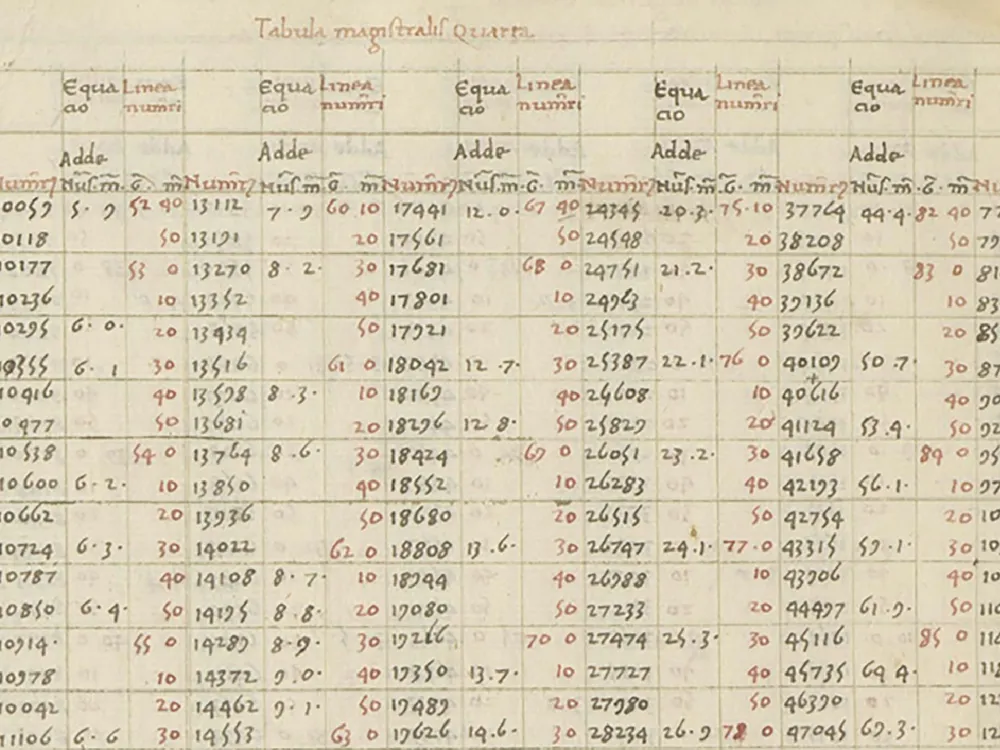
Historians have long thought that the decimal point first came into use in 1593, when the German mathematician Christopher Clavius wrote an astronomy text called Astrolabium. It turns out, however, that the history of the decimal point stretches back another 150 years–to the work of the Venetian merchant Giovanni Bianchini. In his text Tabulae primi mobilis, written during the 1440s, Bianchini used the decimal point to calculate the coordinates of planets. In so doing, he invented a system of decimal fractions, which, in turn, made the calculations underpinning modern science more efficient and less complex, notes Scientific American.
Glen Van Brummelen, a historian of mathematics, recently recounted to NPR how he discovered Bianchini’s innovation:
I was working on the manuscript of this astronomer, Giovanni Bianchini. I saw the dots inside of a table — in a numerical table. And when he explained his calculations, it became clear that what he was doing was exactly the same thing as we do with the decimal point. And I’m afraid I got rather excited at that point. I grabbed my computer, ran up and down the dorm hallway looking for colleagues who still hadn’t gone to bed, saying, this person’s working with the decimal point in the 1440s. I think they probably thought I was crazy.
In a new article appearing in the journal Historia Mathematica, Van Brummelen explains the historical significance of the decimal point, and what this discovery means for the historical development of mathematics. You can read it online.
Related Content
Trigonometry Discovered on a 3700-Year-Old Ancient Babylonian Tablet
How the Ancient Greeks Shaped Modern Mathematics: A Short, Animated Introduction


Love this kind of discovery! Kudos to GVB.